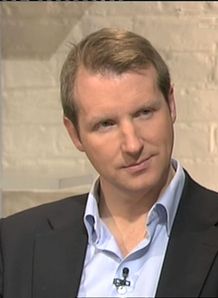Sunday saw the North West Counties Cup final at Edge Hill University. The day saw teams from Under 16, 17 & 18 age groups compete.
The Under 16 match saw a spirited second half fight back from Golbourne Parkside come in vain against Wigan St. Patrick. A brace of tries came from full back Daniel Rushton who’s goal-kicking was fundamentally the difference in the 24-18 score line.
The Under 17 final contested between Crosfields and Halton Farnworth Hornets went all the way to extra time after the two sides traded field goals in the closing minutes.
Crosfields went into the second period of the game leading 18-6; however two second half tries from the Hornets tied the game up at 18 apiece.
The Crosfields fans had already, quite literally for some, began to crack open the champagne in celebration before Halton tied the game up. The Hornets then took the lead via a drop goal which had been set-up well by the forwards, the ball moving from right to left to create the easiest of chances.
It was clear that panic was setting in for the Crosfields side as they scrambled in an attempt to clinch the game or at least take it to an extra 15 minutes. The Warrington based team managed to drive their way into drop goal range, nudging over to take the game to extra time.
The score that clinched the title for the Widnes based club came in the dying minutes of the first seven and half minute period following ‘backs to the wall’ defence of their own try line. A cross field chip was collected on the 30 metre line by left winger Jimmy Hilton who finished well in the corner as cries of offside from players and supporters were waved away by the referee.
Halton came through the second period without conceding and thus were crowned the 2010 North West Counties champions.
The final game was a derby of sorts between Leigh Miners and St Judes of Wigan. The Wigan outfit won this game of attrition 12-10 following a late scare in the last 10 minutes.
Leigh captain Darryl Flanagan led from the front in the very first minute of the game, the loose forward putting in the first big hit of the game during Wigan’s very first possession of the football.
A try for Wigan came just three minutes later via opposing loose forward Stuart Banks taking the ball on the crash just five metres from the try line, touching down as tacklers fell off the attacker. The conversion was missed by number 12 James Rimmer making the score line 4-0.
The opening 10 minutes of the game was a messy affair as both sides struggled to keep hold of the ball, knocking on frequently in the tackle. This was exemplified by the Miners forcing a repeat set only to lose the ball on the resulting play as they attempted to go wide early.
Leigh’s first try came in bizarre circumstances. Full back Hayden Skinkis attempted to control a kick from St. Judes by controlling it with his foot only for a heavy touch to take the ball into the right hand corner. Wigan, however, were unable to deal with the bouncing ball and Leigh winger Jonathan Grimshaw touched down.
The Miners nearly made it two tries in as many minutes, a deflected pass adjudged to travel forward by the referee.
Wigan failed to keep possession from the resulting scrum and again Leigh came close to scoring. A burst from first receiver by hooker Sam Clayton took him over the line, only for him to be unable to ground the ball – knocking on in the process.
Following this the game meandered its way to half time, changes in possession being forced by both sides. At 4-4 the first half had been very staggered, lacking in both rhythm and handling.
The first points of the second half came via the boot of Tommy Parkinson, Wigan penalised for an infringement at the ruck only to be marched 10 metres for dissent. The centre converted the easiest of kicks to take his side into a 6-4 lead.
The game continued to be an error strewn affair both sides failing to successfully keep hold of possession and complete sets. Aimless and poor kicking became a feature of the second half.
St. Judes extended their lead in the 50th minute, James Rimmer touching down in the corner with two men queuing up outside him to score. Rimmer scored a second 15 minutes later from longer range, taking advantage of a stretched Miner’s defence, to make it a two score game, 12-6 as failed to convert either of his tries.
As the game moved into the final 10 minutes Wigan nearly put the game beyond any doubt but a knock on chalked the try off.
Leigh then made it a nervous last five minutes for St. Judes via a Tommy Parkinson try, the Wigan back three were unable to deal with a kick through and the number 3 gratefully ran the ball in for a four point score.
Strong defence in the last minute by St. Judes sealed the game for the Wigan side, forcing the Leigh players out of play, finishing the game 12-10. The man of the match was awarded to Wigan St. Judes captain Michael Whittle as the champagne flowed.
 The first league meeting of the new speedway elite league season saw last years runners up Swindon Robins down hosts Eastbourne Eagles 47-43.
The first league meeting of the new speedway elite league season saw last years runners up Swindon Robins down hosts Eastbourne Eagles 47-43.



